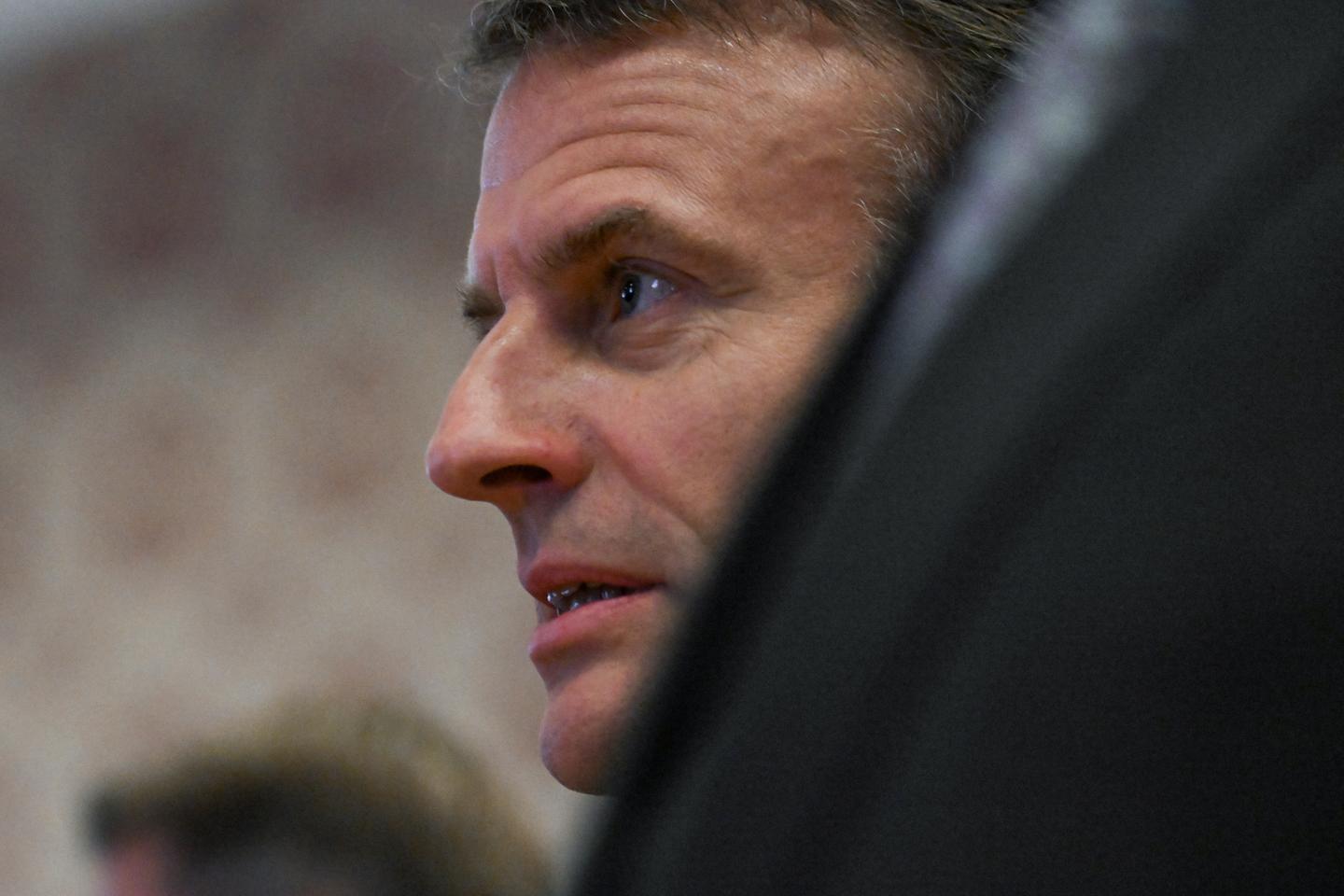


"Very good." Freshly returned from New Caledonia, President Emmanuel Macron, on May 24, used just two words to describe the new leaflet for the European elections on June 9, sent to him "as a courtesy" by the campaign team. The delivery of the flyers, featuring Prime Minister Gabriel Attal in the foreground, all smiles, next to the presidential camp's lead candidate, Valérie Hayer, in front of a forest of European flags, was already underway.
He was showing no signs of it, but the president, who privately refers to his young prime minister as "the phenomenon," had plenty to be bitter about. On the ground, campaigners were ecstatic to receive new leaflets that no longer feature the presidential face. Attal, 35, has "a big, big rating," enthused Jérôme Berthier, head of mobilization for Macron's Renaissance party in the Yvelines, west of Paris. Leaflets bearing the prime minister's effigy were finding more takers than those with the president, to the relief of campaigners exhausted by the hostility they've been enduring for weeks. "As soon as we hand out a leaflet with Emmanuel Macron's face on it, we're met with a 'Ah no, not him!'" lamented a campaigner in the Paris region, who refused to give their name.
In 2019, during the previous European elections, Macron's photo and words helped mobilize pro-European citizens. This time, the French president's omnipresence has not been able to halt the presidential camp's decline in the polls. Macron's grand speech at the Sorbonne on April 25 had no noticeable effect on public opinion. Nor did his interviews with La Tribune Dimanche (May 5), Elle (May 7), and L'Express (May 22).
Wear and tear on power
"Just a short while ago, Emmanuel Macron was seen as a brand with the effect ofa miracle solution allowing to transfer fame and popularity to unknown candidates. Today, his symbolic capital seems exhausted: The transfer is broken," observed Raphaël Llorca, associate expert at the Fondation Jean Jaurès and author of La Marque Macron ("The Macron Brand").
From Dresden, Germany, on Monday, May 27, the French president thundered: "It's time to wake up!" In vain. The president's warnings against the "ill winds" of the far right in Europe continue to be futile. And perhaps counter-productive, analysts point out. "Emmanuel Macron is the solution, but also the problem. He can remobilize part of his electorate. But he is also reviving the sanction vote," stressed Frédéric Dabi, director of the IFOP polling institute.
Weighed down by the wear and tear of power, the president is provoking the disappointment of some of his voters and the growing exasperation of his opponents. The far-right Rassemblement National (RN) is feeding off the rejection of Macron. This election "is the only opportunity the French have in five years to sanction Emmanuel Macron's policies (... ) The sanction must be heavy," drummed RN lead candidate Jordan Bardella, in an interview with Le Parisien, on Thursday.
You have 46.72% of this article left to read. The rest is for subscribers only.
